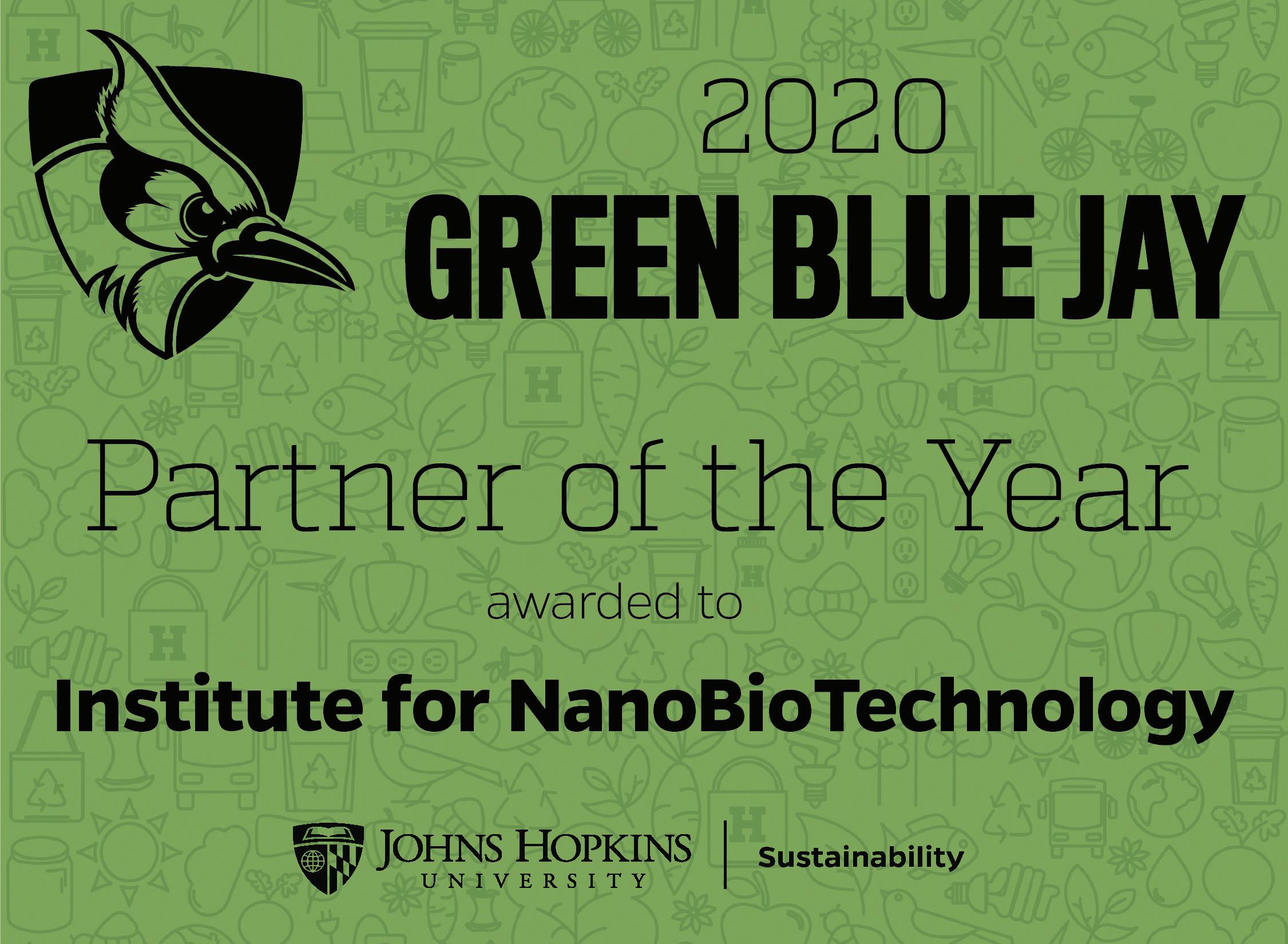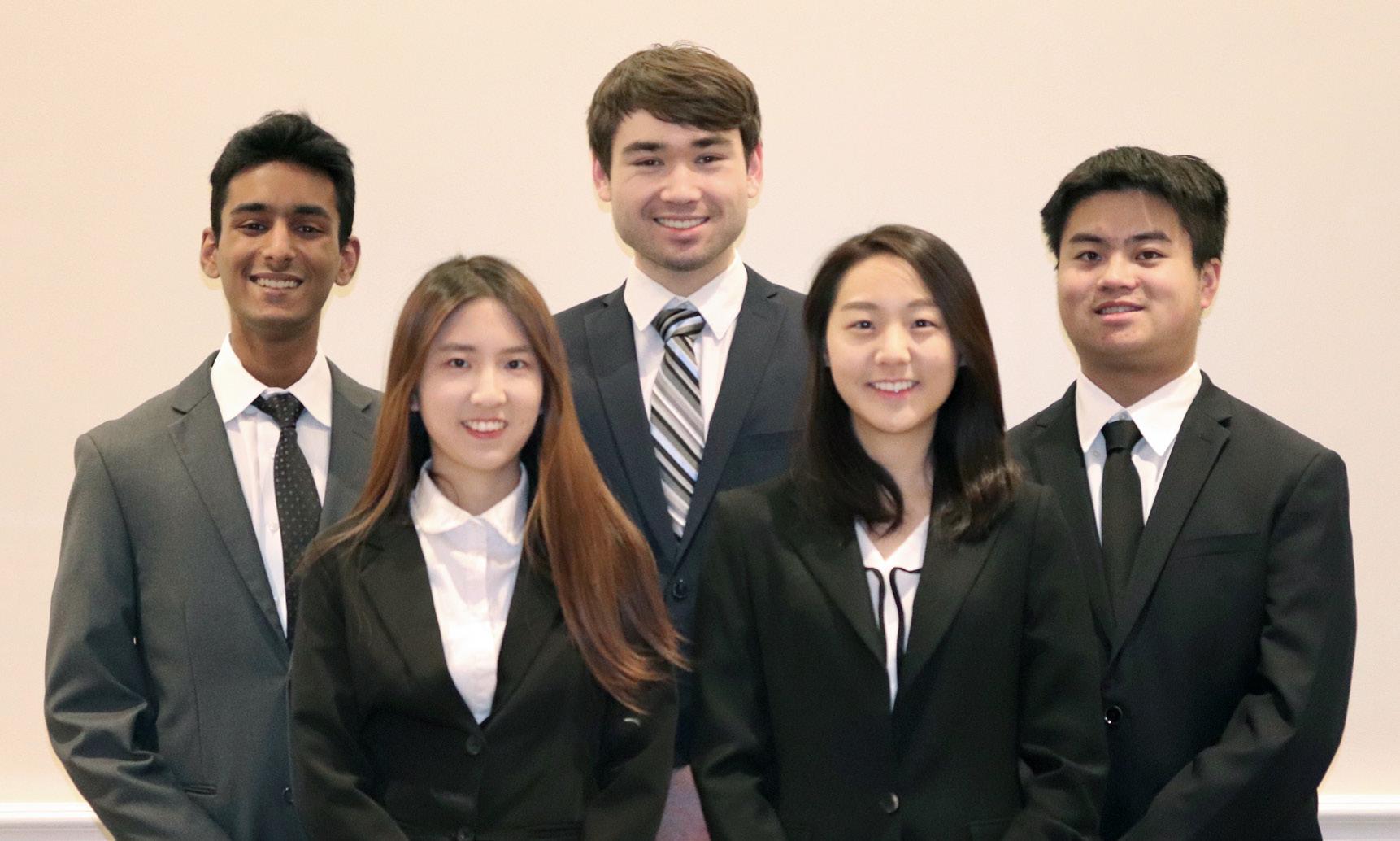
2 minute read
Masters Co-Op Program Participation Grows During Pandemic
designed to help faculty members better understand the needs and challenges faced by underrepresented students and how to help them succeed.
Advertisement
Such programs will be developed in consultation with Darlene Saporu, assistant dean for diversity and inclusion for the Whiting School of Engineering and the Krieger School of Arts and Sciences, and with collaborators from other Hopkins organizations, such as the Black Graduate Student Association, Society of Black Alumni, and Krieger and Whiting Diversity Champions. After he completes his PhD, Hall is interested in studying pharmacogenetics, which investigates how changes in genes, even one, affect a drug’s efficacy. Specifically, Hall wants to know how different ethnic populations respond to medications to aid in better drug development and disease treatments.
For five years, the Institute for NanoBioTechnology has been offering engineering master’s students an alternative curriculum for those seeking a more hands-on, real world experience. Many degree programs offer a course or research-based curriculum, but the INBT offers students the chance to spend six months working full time for an INBT industry partner where they put engineering principles they learned in the classroom to practice. While the students work, they earn college credit toward their degree and are paid a salary by the company. When the COVD-19 stay-at-home orders were implemented around the country, the future of the Master’s Co-Op program became unclear. Despite this, and to everyone’s surprise, the INBT had an increase in the number of applicants to the program. Wanting still to provide students at home with a valuable learning experience, the INBT worked
with industry partners to see what could be done. Fortunately, some companies were able to adapt student projects to the new socially distanced climate and work-from-home standards. Some projects started virtually then later transition to in-person while others remained completely virtual. Thanks to everyone’s innovative collaboration, more students could be placed in the Co-Op program during the pandemic than INBT and their partners have had in previous years. The Co-Op program is open to incoming engineering students in the Materials Science and Engineering Department, Chemical and Biomolecular Engineering Department, and as of two years ago the Mechanical Engineering Department. Students work with a faculty member and company supervisor to design and complete engineering projects ranging from pharmaceuticals, biotech products, specialty materials and chemicals for products, systems engineering, and more. Collaborating together to find a workable solution in these unique circumstances has strengthened the bond between the INBT and our participating industry partners. Not only that, but virtual learning has also generated new ideas for the program such as exploring partnerships with companies that are located in remote or far locations where traveling and relocating to a new area makes it difficult for students. While the Co-Op program coordinators hope students can return to in-person job training soon, they continue to identify student opportunities if socially distanced learning continues longer than anticipated.
Companies with Training Opportunities
AstraZeneca Baltimore Aircoil Company Becton Dickinson Bristol-Myers Squibb Ethicon Biosurgery (Johnson & Johnson)
FDA GEA GlaxoSmithKline Graham Packing Company Johns Hopkins Applied Physics Laboratory New York Stem Cell Foundation Paragon Bioservices Regeneron W.R. Grace
Go to inbt.jhu.edu/masters to see our full list of industry partners, video, and more about the program.










